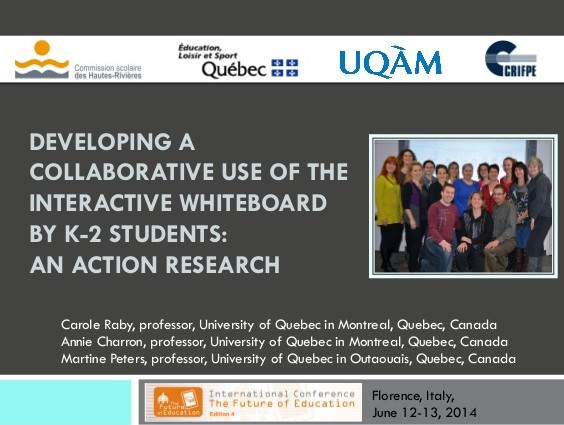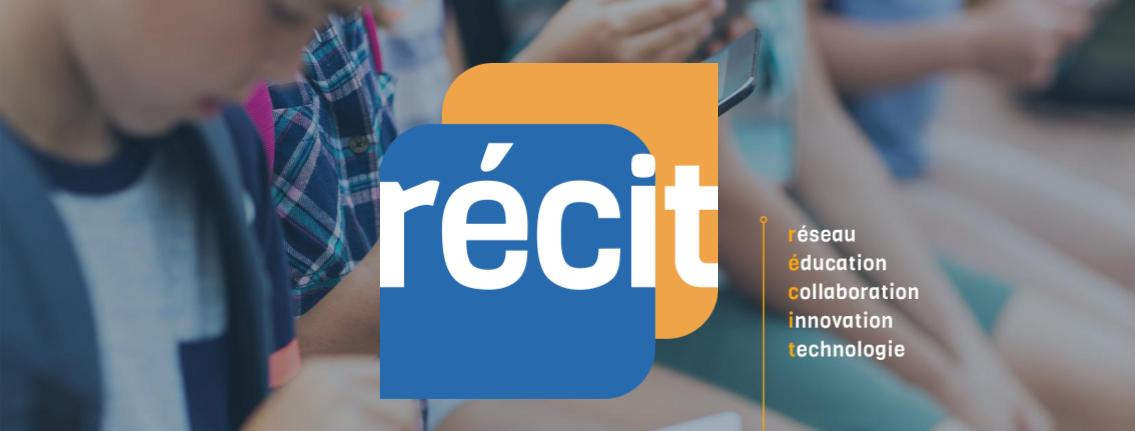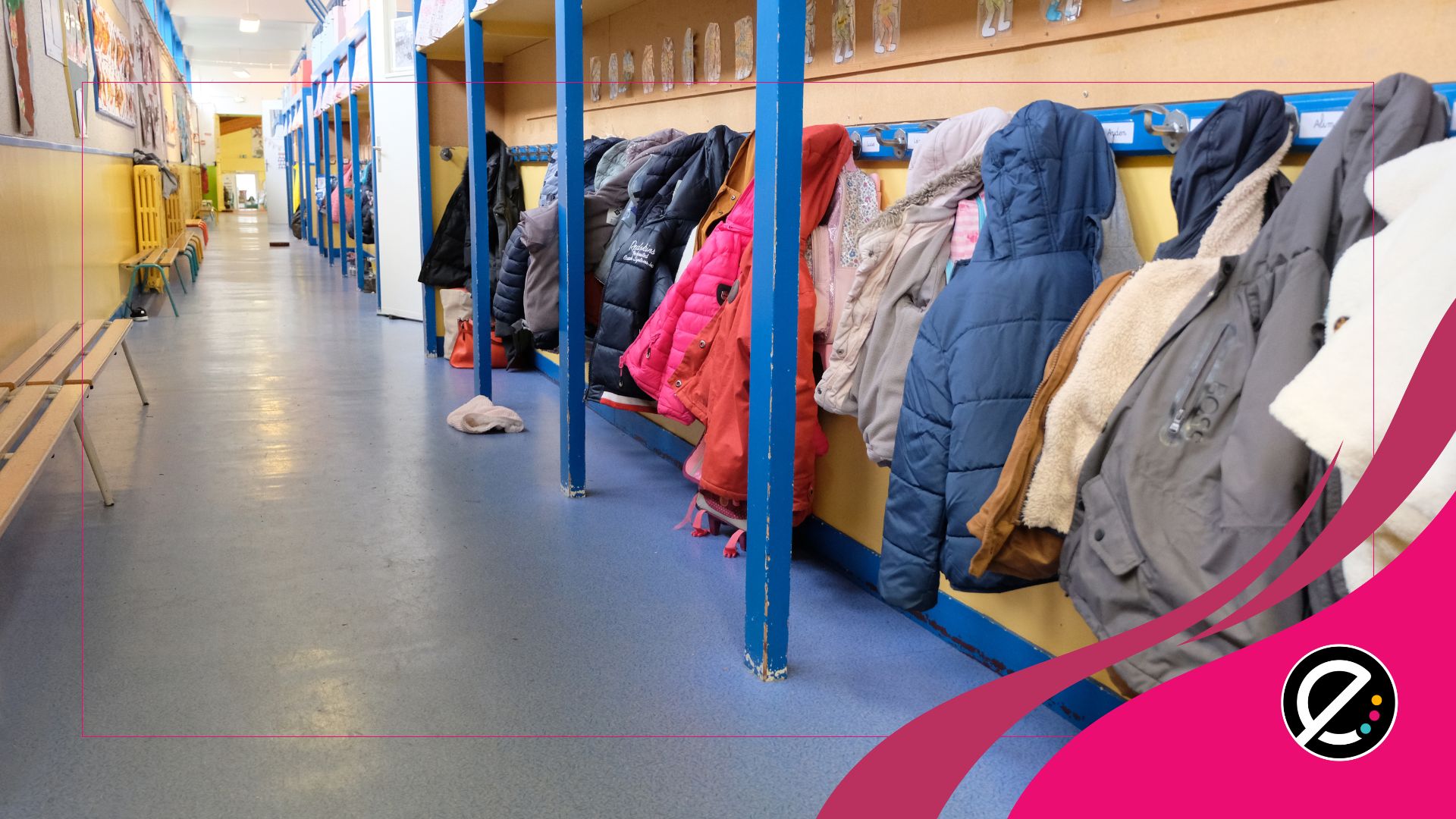Des avantages dans la maîtrise de la langue, dans le développement de l’autonomie et dans la maîtrise des TIC chez les élèves du préscolaire et du 1er cycle ont notamment été notés, jusqu’à présent, dans une recherche de professeures associées au CRIFPE sur l’utilisation collaborative du TBI.
Les professeures Carole Raby, Annie Charron et Martine Peters, de l’UQÀM, participaient les 12 et 13 juin dernier à la conférence The Future of Education, qui a eu lieu à Florence en Italie. Elles ont présenté les résultats préliminaires de leur recherche sur le développement d’une utilisation collaborative du tableau interactif (TBI) chez les élèves du préscolaire et du 1er cycle du primaire.
Ces résultats des deux premières années de la recherche montrent des impacts positifs sur l’apprentissage, notamment :
– dans l’acquisition du vocabulaire (ex. : jeu d’anagramme)
– en lecture, même chez les élèves en difficulté
– en écriture (écrire à main levée, faire des mots et des phrases, organisation spatiale, structure d’une histoire)
En résumé, on note qu’autour du tableau interactif, les élèves doivent discuter, échanger, faire des compromis, donner des idées, trouver des solutions, demander de l’aide, etc. Certaines activités aident au développement des compétences en lecture, comme de trouver des mots, associer des images et des mots, lire le message du jour, faire des jeux de mots, etc. Au préscolaire, l’enseignant peut taper un mot au clavier pendant qu’il le prononce, ce qui aurait un impact global positif sur la maîtrise de la langue selon les enseignants interrogés.
D’autres compétences générales bénéficient de l’utilisation du tableau interactif en classe, comme l’autonomie et la maîtrise des TIC.
En conclusion, les chercheures indiquent que malgré les avantages du TBI en classe, mis en lumière par plusieurs études, il reste à démontrer clairement son impact sur l’apprentissage des élèves. Chose certaine, les enseignants ont besoin de formation et de soutien continu pour que le TBI devienne un outil de co-construction du savoir et de développement des compétences des élèves.
On peut consulter ici la présentation complète faite en Italie (en anglais).






